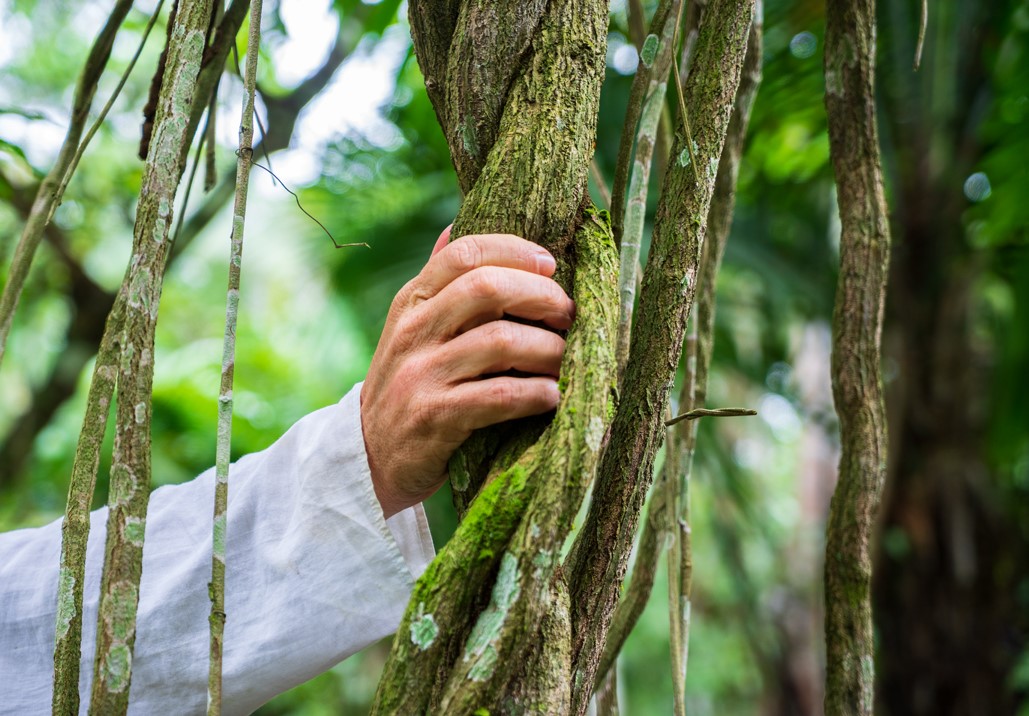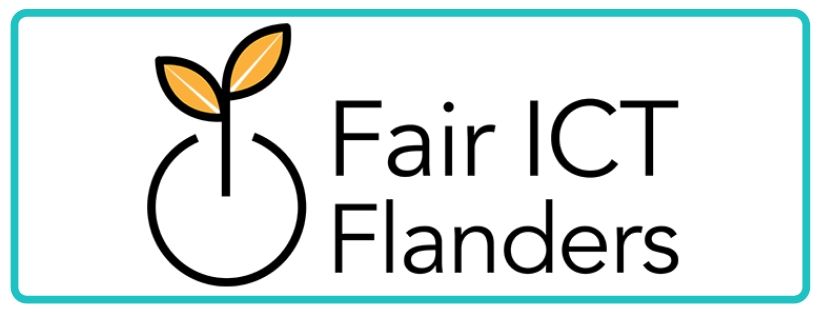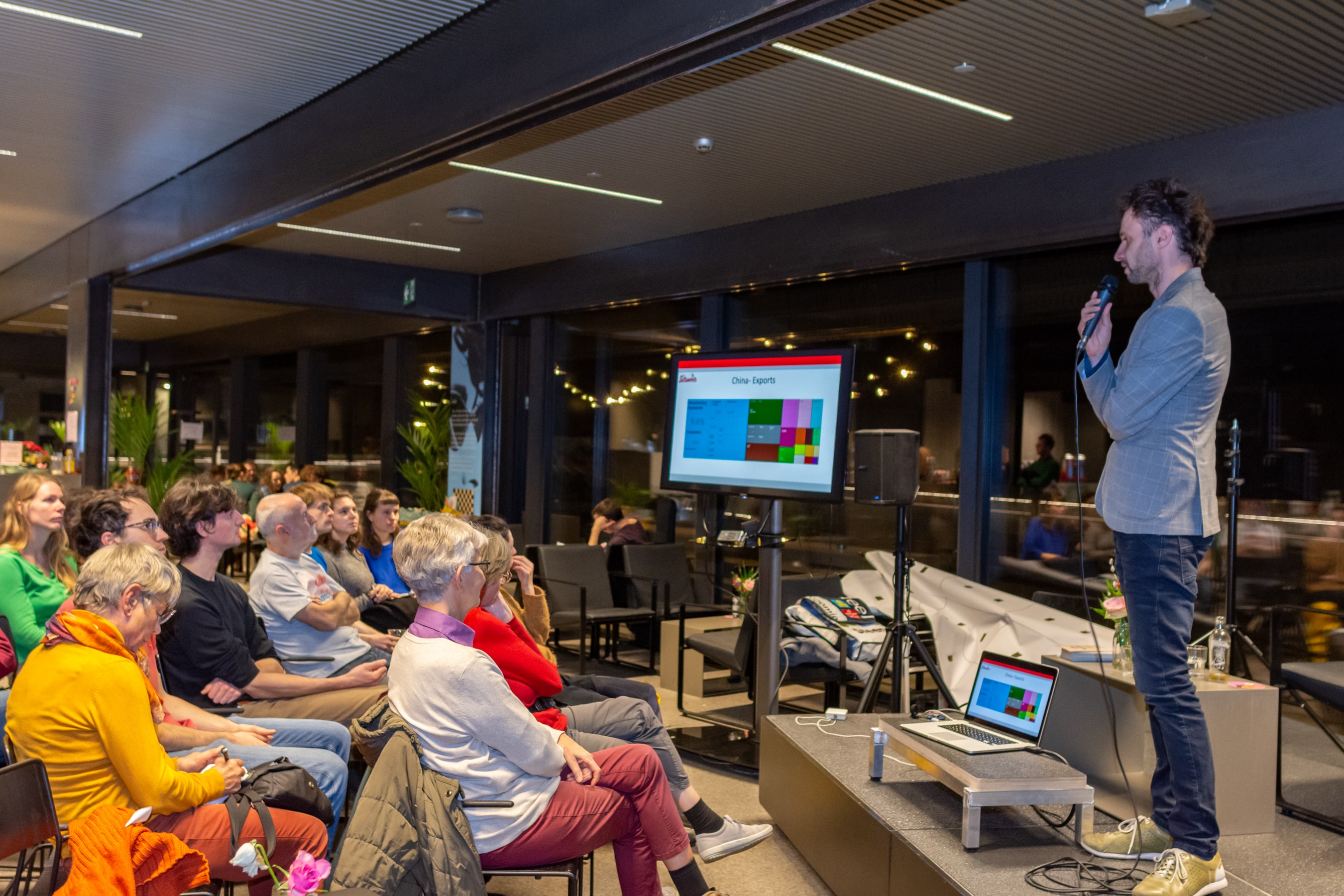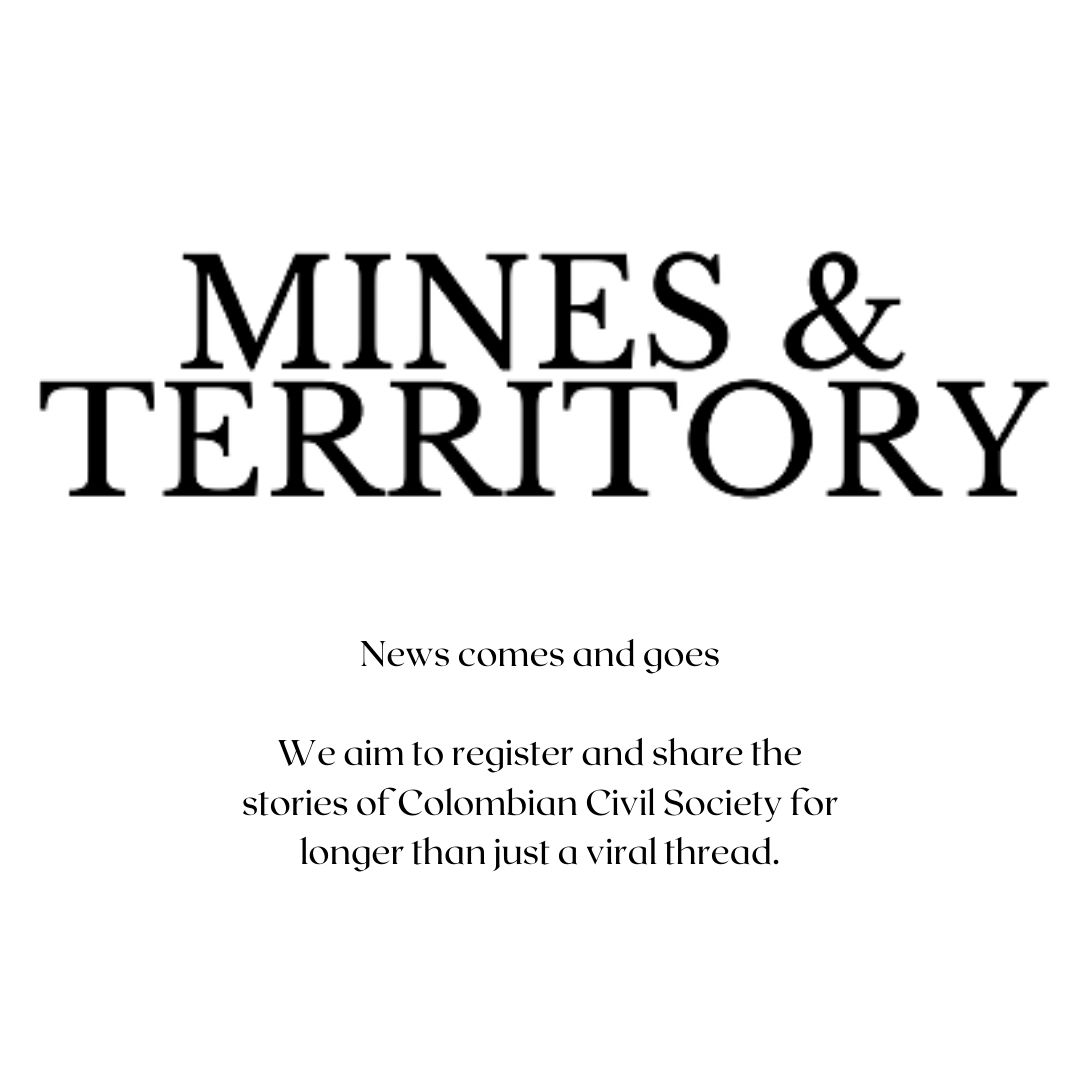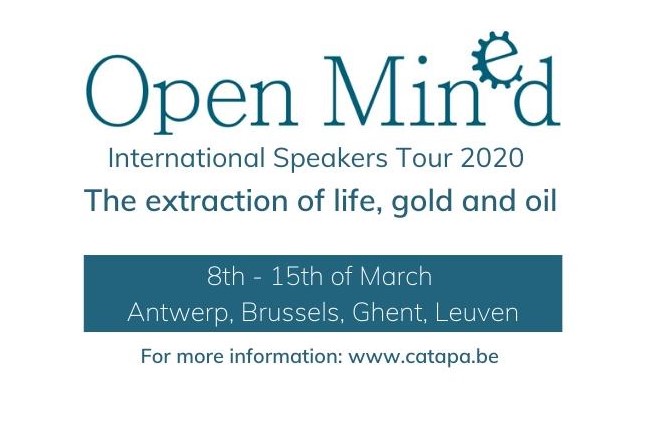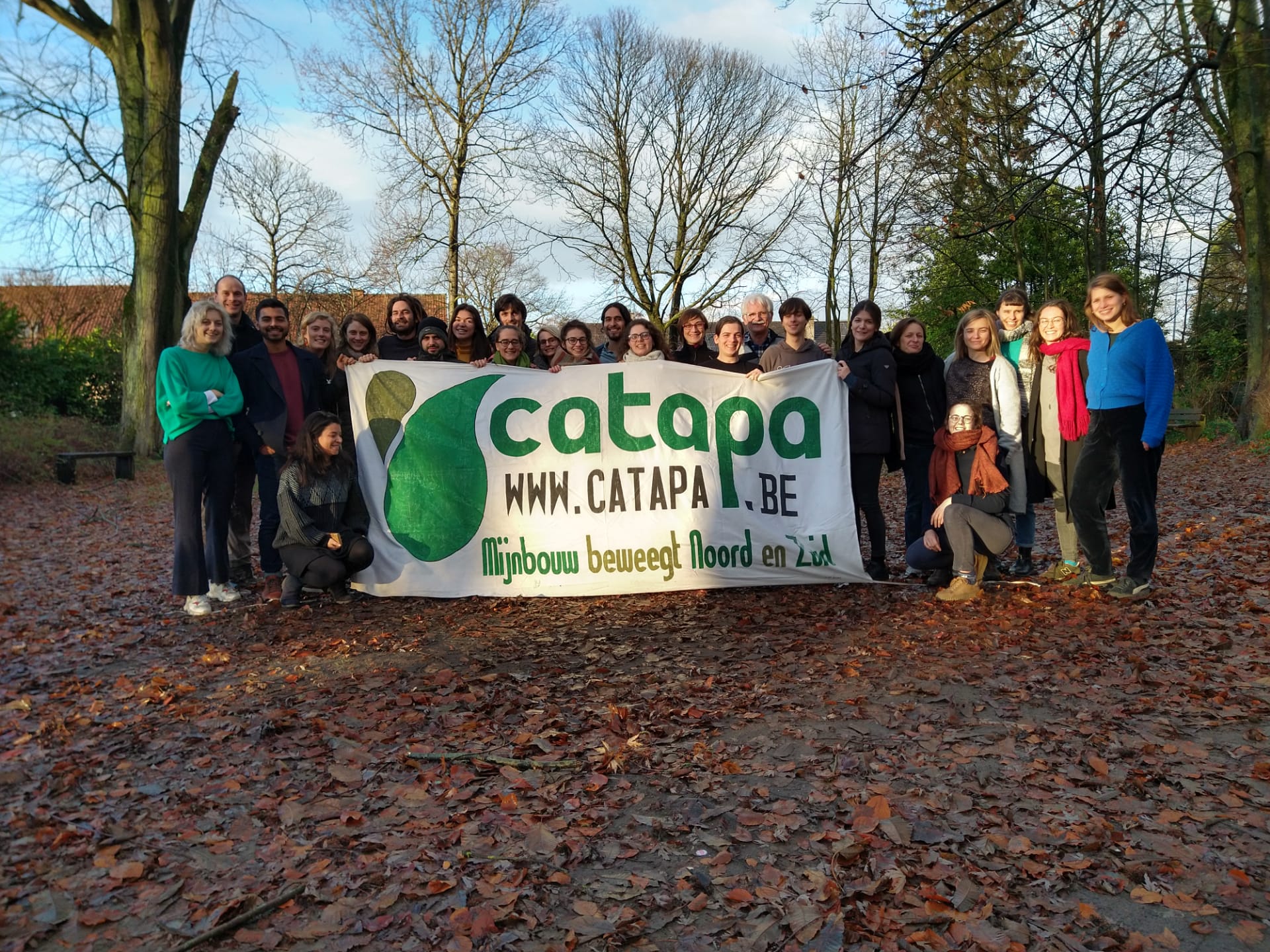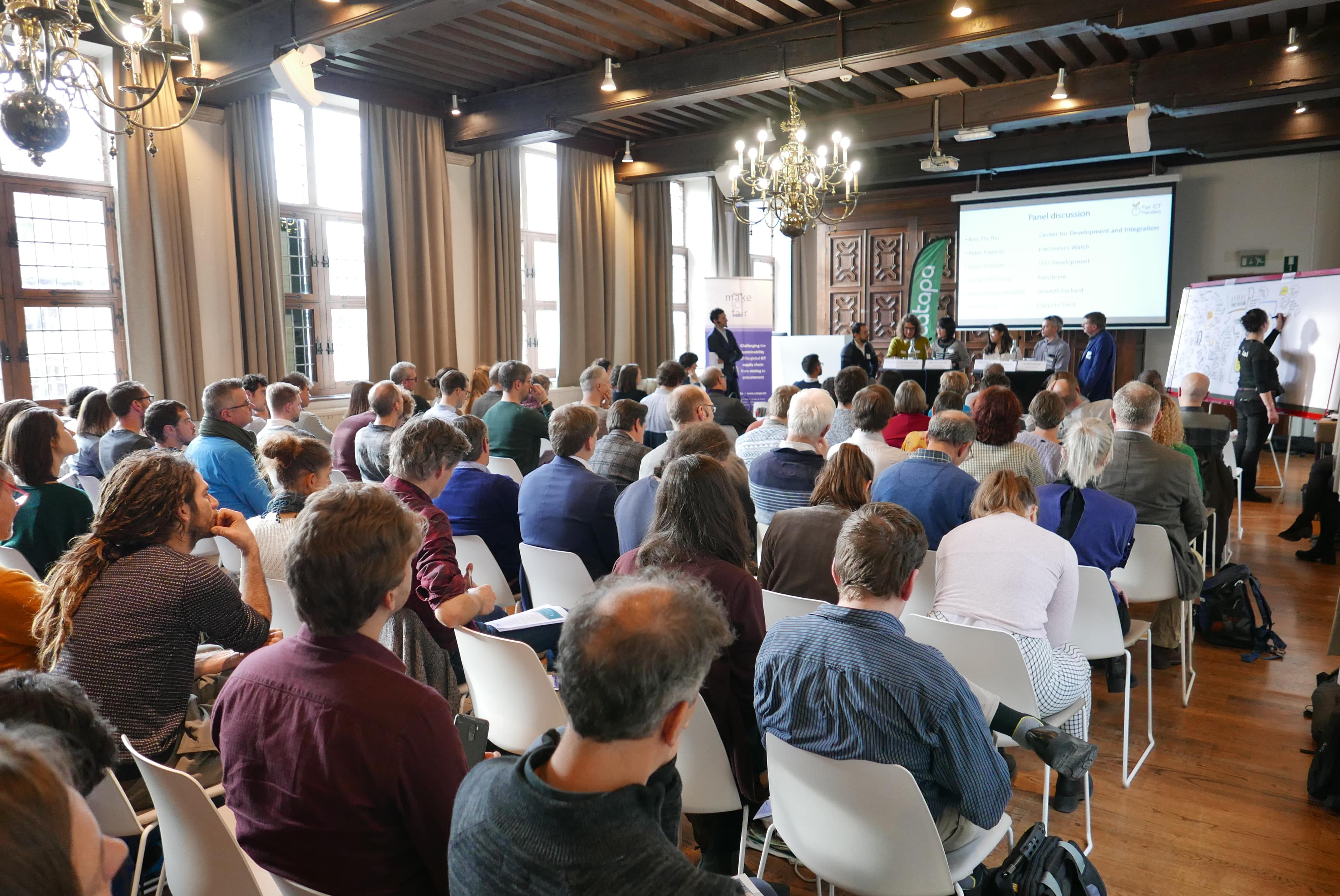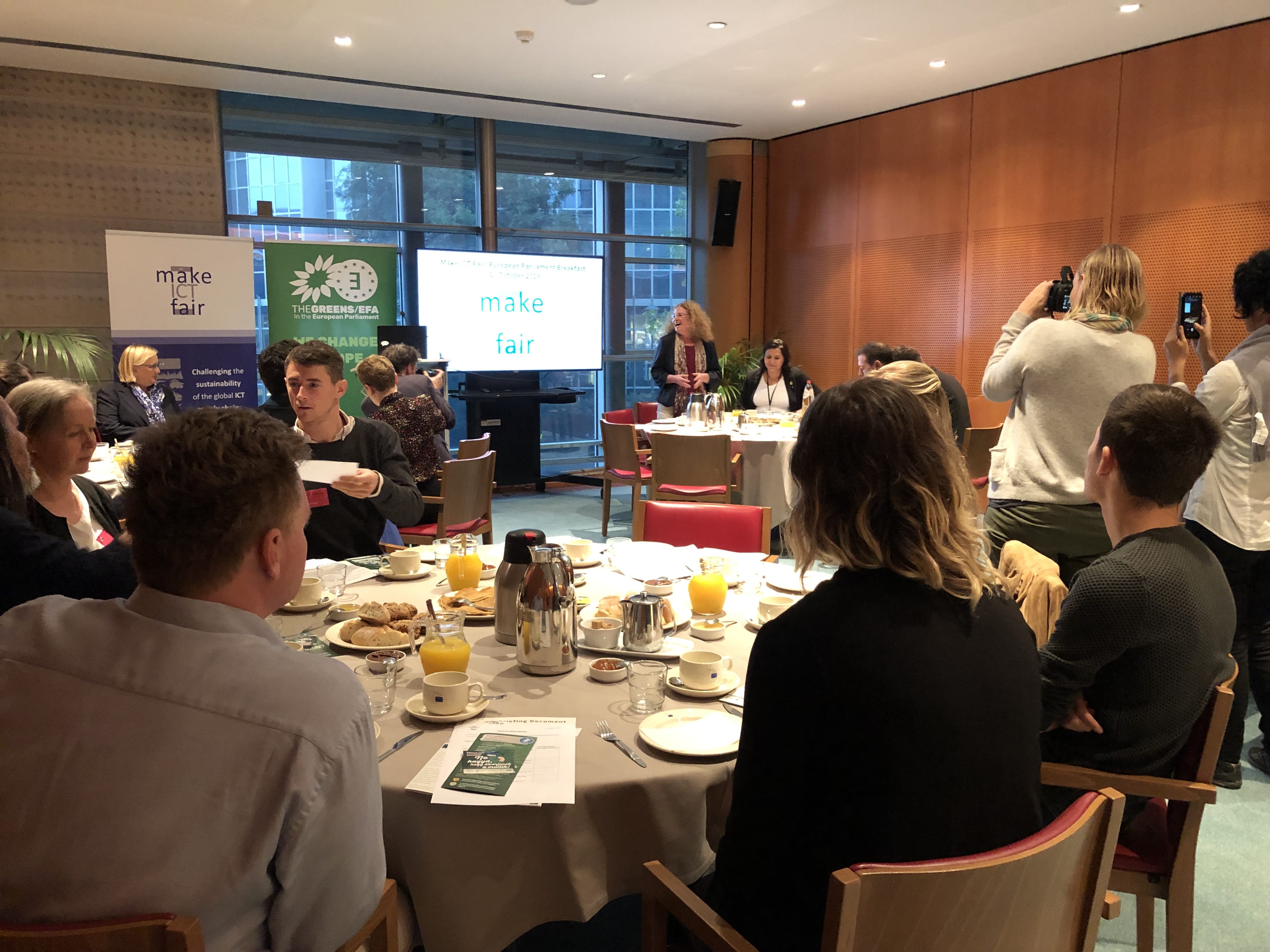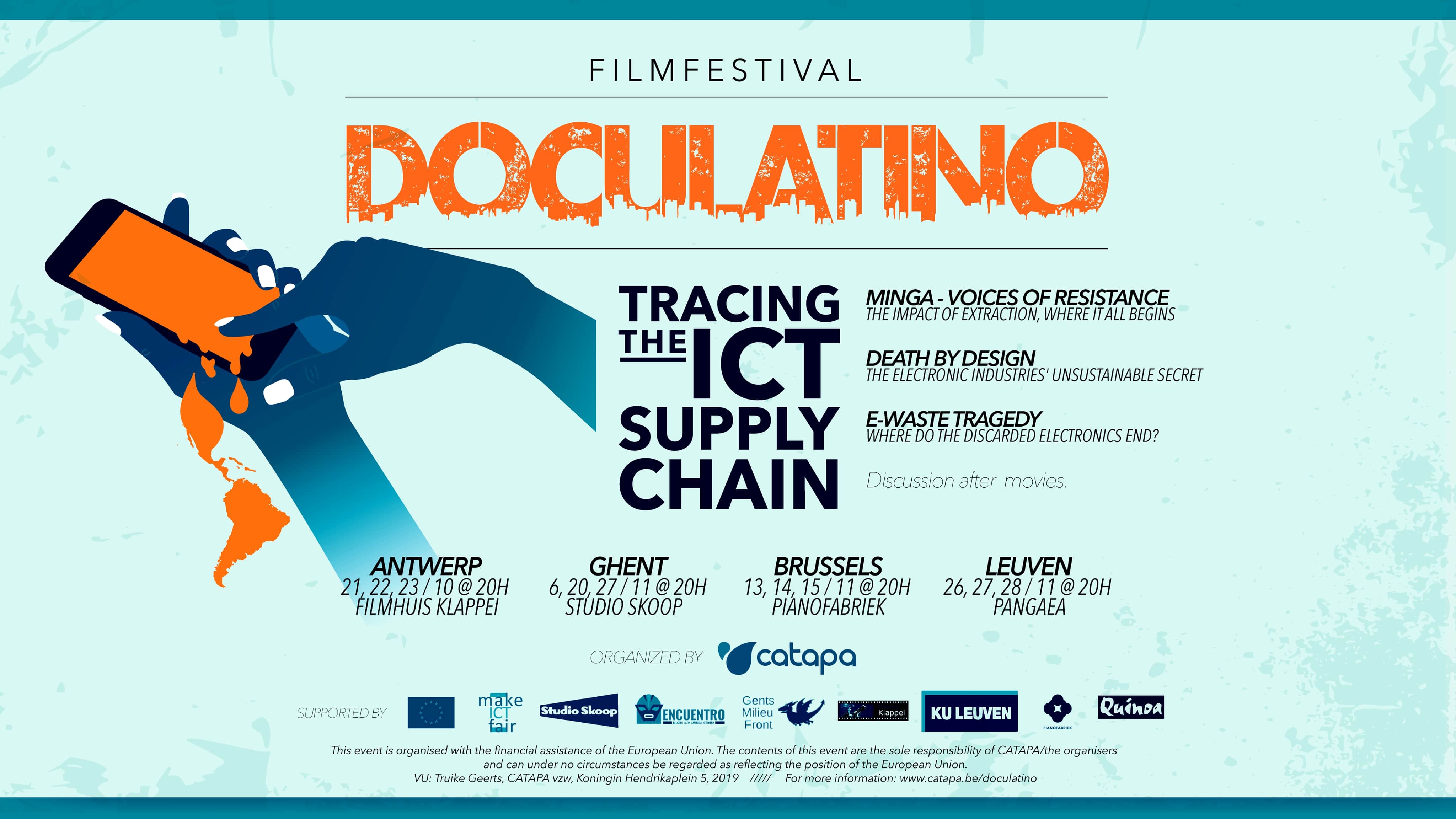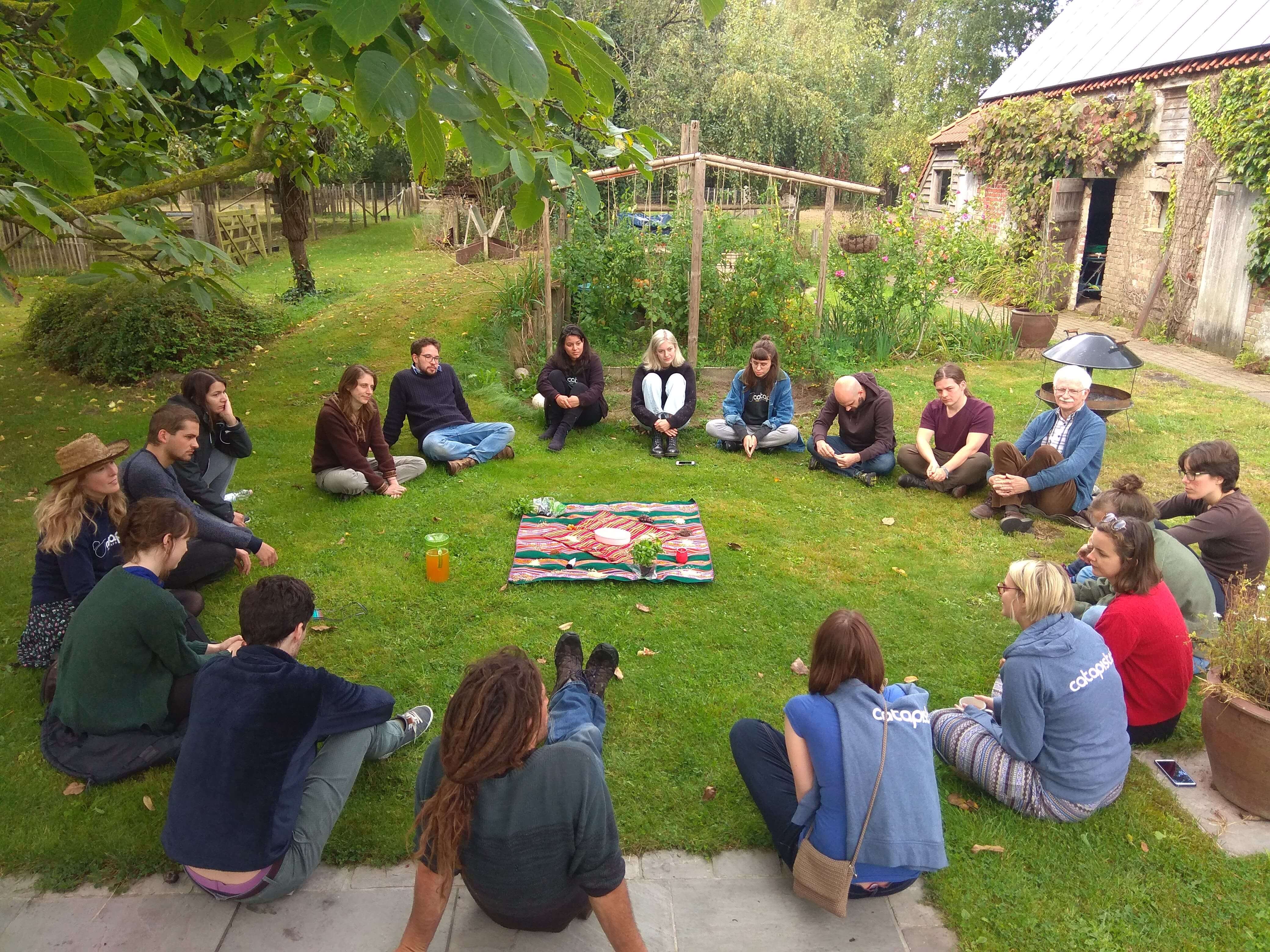We hebben weer een record bereikt. De hoeveelheid grondstoffen die per jaar door de mensheid wordt verbruikt, heeft de 100 miljard ton overstegen*. Tegelijkertijd is het percentage gerecyclede grondstoffen lager dan de jaren daarvoor. Kortom, we zijn aan het overconsumeren. Om aan de toenemende vraag naar goederen te voldoen, zoeken bedrijven naar de laagste productiekosten. Dat staat gelijk aan slechte arbeidsomstandigheden en de ontwikkeling en opstapeling van tonnen afval om zoveel mogelijk winst te genereren. Laten we samen nadenken over oplossingen voordat er geen grondstoffen meer zijn!
Tijdens de 11e editie van CATAPA’s Open MinEd sprekers tour richten we ons op de impact van onze constante vraag naar producten, en de grondstoffen die we nodig hebben om ze te produceren. We zoomen in op werknemers in China, die onze elektronische apparaten onder erbarmelijke arbeidsomstandigheden produceren. We gaan naar Colombia waar de ontginning van goud, een basismetaal in al onze ICT-producten, allerlei problemen oplevert voor lokale gemeenschappen. En tot slot zetten we de ecologische en sociale gevolgen in de schijnwerpers van een van onze belangrijkste grondstoffen: olie. Tijdens de diverse evenementen van de sprekerstour gaan we op zoek naar antwoorden, zoomen we in op alternatieven voor onze huidige manier van produceren en consumeren en zetten we eerlijke initiatieven en inspirerende bewegingen in de schijnwerpers.
We zijn blij om drie sprekers te ontvangen, drie getuigen van uitbuiting en conflict. Alle drie strijden ze voor een rechtvaardige wereld:
– Lap Hang Au is lid van het Labour Education and Service Network in Hong Kong. Hij zal vertellen over de arbeidsomstandigheden in ICT-fabrieken in China en hij heeft specifieke expertise over de impact van lithium-ionbatterijen die o.a. gebruikt worden voor elektrische auto’s. Deze worden als fundamenteel beschouwd voor the Green Transition.
– Antonella Calle Avilés is een Ecuadoraanse feministe en ecologe. Ze is actief in onze partnerorganisatie, Acción Ecológica, een milieuorganisatie die zich bezighoudt met de impact van ontginning in Ecuador. Antonella is al jaren een verdedigster van milieurechten en op dit moment richt ze zich vooral op het oliewinningsproject in Yasuní national park, een van de meest biodiverse plaatsen op aarde.
– Yefferson Rojas Arango is de medeoprichter van onze partnerorganisatie COSAJUCA in Colombia. COSAJUCA is een jongerencollectief dat er eigenhandig voor gezorgd heeft dat het grote open-pit goudmijnproject ‘La Colosa’ er niet door gekomen is. Nu richt Yefferson zich samen met het collectief op alternatieven voor mijnbouw in de regio, zoals biologische landbouw. Hij is vooral geïnteresseerd in agro-ecologie en medicinale planten.
Van 8 tot 15 maart nemen onze internationale gastsprekers deel aan evenementen en lezingen in verschillende steden en universiteiten van België, waar ze hun verhalen vertellen en hun kennis delen.
AGENDA
Evening tbc | Opening exhibition: Activism and feminism | ES, NL
@Antwerp – Mundana, Paardenmarkt 74
@Ghent – Bond Moyson, Vrijdagmarkt 10 (take the entrance through the door in the street ‘Meerseniersstraat’)
@Ghent – Lekker GEC, Koningin Maria Hendrikaplein 6
14:30 – 17h | ANTONELLA | Guest lecture | EN
@Ghent – Universiteitstraat 4, auditorium B
16 – 17:30h | AU | Guest lecture | EN
@Heverlee (Leuven) – KU Leuven Celestijnenlaan 200C-01.06 (aula D) (Campus Heverlee)
8:30 – 9:45h | YEFFERSON | Guest lecture | ES
@Gent – UGent, Abdisstraat 1, auditorium A410
13 – 14:30h | YEFFERSON | Guest lecture | NL
@Gent – Campus aula, universiteitsstraat 4, auditorium D (straatkant, vlak aan kalandeberg)
11 – 12h | AU | Webinar from Fair ICT Flanders: Labour conditions in Battery factories in China | ES
14 – 15:30h | AU | Guest lecture | EN
18 – 19:30h | AU | Guest lecture | EN
@Gent – address + auditorium to be confirmed
20h | ANTONELLA | Cinema Belmundo, movie screening of By the name of Tania | NL
@Gent – Studio Skoop, Sint-Annaplein 63.
12:30 – 13:50 | YEFFERSON | Spanish Class | ES
@Antwerp – Universiteit Antwerpen Stadscampus – auditorium not yet known
9 – 10:30 | YEFFERSON | Guest lecture | EN
@Leuven – KULeuven HIVA Parkstraat 47
13 – 17h | AU | Conference: “Green Transition Challenged by the Metal Supply Chain” | EN
@Flemish Parliament, Brussels
https://kuleuven.sim2.be/registration-for-green-transition-challenged-by-the-metal-supply-chain/
14:30 – 17:15h | ANTONELLA | Guest lecture: Political issues of sustainability: ecology, justice and North-South relations. The case of mining | NL
@Ghent – UGent, Universiteitsstraat 4, auditorium tbc
10:45 – 12:15h | AU | Guest lecture: Car technology & automotive engineering | EN
@Sint-Katelijn-Waver- KU Leuven Technology Campus De Nayer, Jan Pieter de Nayerlaan 5, ROOM A002
Evening tbc | ANTONELLA & YEFFERSON | Fun(d)raising concert |NL, ES, EN
@Gent – Louisaal (Buurtcentrum Macharius), Tarbotstraat 61A.
Morning tbc | YEFFERSON | Brunch with Farmers |
@Brussels – address to be confirmed
Facebook event!
*The Circularity Gap Reporting Initiative: a global score for circularity






